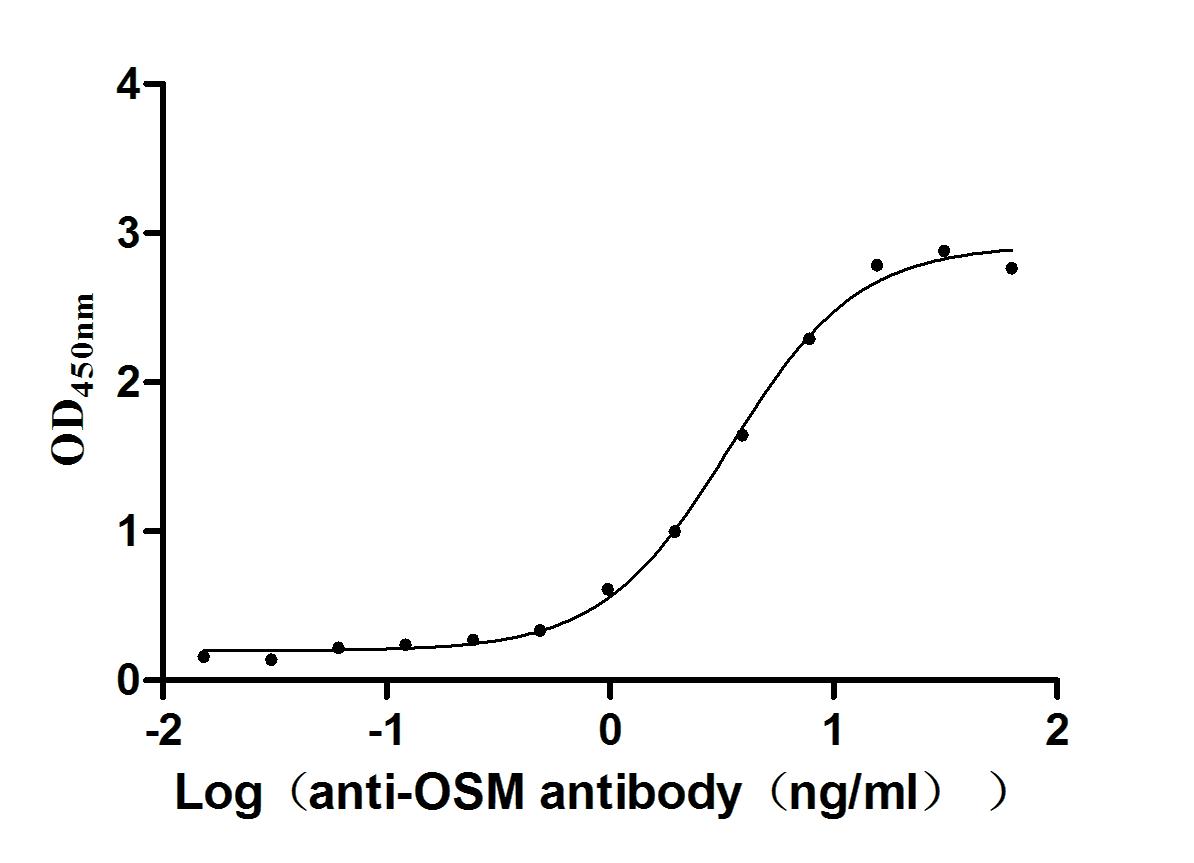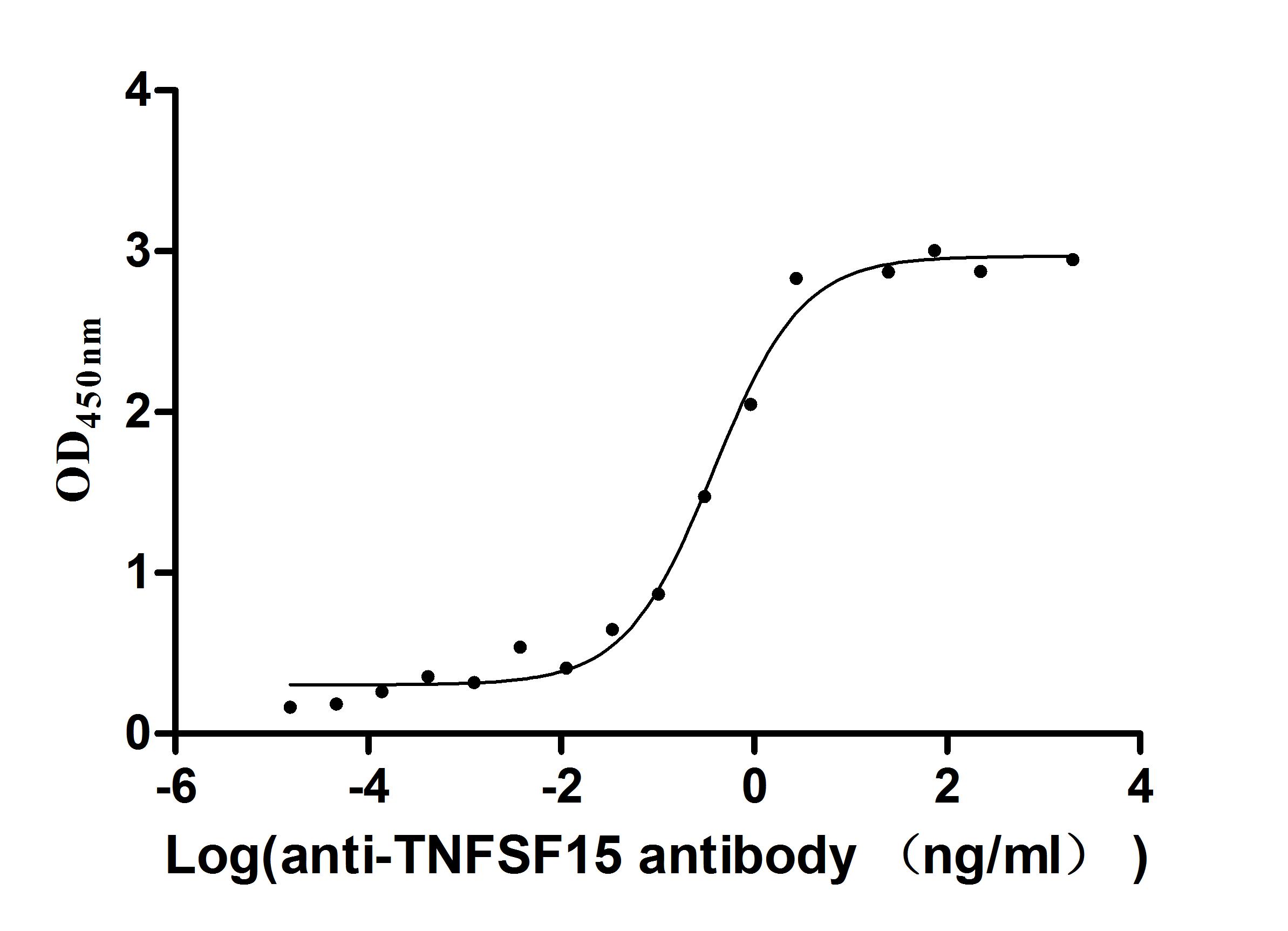Recombinant Human Vitamin K-dependent protein Z (PROZ)
-
中文名称:人PROZ重组蛋白
-
货号:CSB-YP018759HU
-
规格:
-
来源:Yeast
-
其他:
-
中文名称:人PROZ重组蛋白
-
货号:CSB-EP018759HU
-
规格:
-
来源:E.coli
-
其他:
-
中文名称:人PROZ重组蛋白
-
货号:CSB-EP018759HU-B
-
规格:
-
来源:E.coli
-
共轭:Avi-tag Biotinylated
E. coli biotin ligase (BirA) is highly specific in covalently attaching biotin to the 15 amino acid AviTag peptide. This recombinant protein was biotinylated in vivo by AviTag-BirA technology, which method is BriA catalyzes amide linkage between the biotin and the specific lysine of the AviTag.
-
其他:
-
中文名称:人PROZ重组蛋白
-
货号:CSB-BP018759HU
-
规格:
-
来源:Baculovirus
-
其他:
-
中文名称:人PROZ重组蛋白
-
货号:CSB-MP018759HU
-
规格:
-
来源:Mammalian cell
-
其他:
产品详情
-
纯度:>85% (SDS-PAGE)
-
基因名:PROZ
-
Uniprot No.:
-
别名:Protein Z, vitamin K dependent plasma glycoprotein; PROZ; PROZ_HUMAN; PZ; Vitamin K-dependent protein Z
-
种属:Homo sapiens (Human)
-
蛋白长度:Full length protein
-
表达区域:41-400
-
氨基酸序列AGSYLLEELF EGNLEKECYE EICVYEEARE VFENEVVTDE FWRRYKGGSP CISQPCLHNG SCQDSIWGYT CTCSPGYEGS NCELAKNECH PERTDGCQHF CLPGQESYTC SCAQGYRLGE DHKQCVPHDQ CACGVLTSEK RAPDLQDLPW QVKLTNSEGK DFCGGVIIRE NFVLTTAKCS LLHRNITVKT YFNRTSQDPL MIKITHVHVH MRYDADAGEN DLSLLELEWP IQCPGAGLPV CTPEKDFAEH LLIPRTRGLL SGWARNGTDL GNSLTTRPVT LVEGEECGQV LNVTVTTRTY CERSSVAAMH WMDGSVVTRE HRGSWFLTGV LGSQPVGGQA HMVLVTKVSR YSLWFKQIMN
-
蛋白标签:Tag type will be determined during the manufacturing process.
The tag type will be determined during production process. If you have specified tag type, please tell us and we will develop the specified tag preferentially. -
产品提供形式:Lyophilized powder
Note: We will preferentially ship the format that we have in stock, however, if you have any special requirement for the format, please remark your requirement when placing the order, we will prepare according to your demand. -
复溶:We recommend that this vial be briefly centrifuged prior to opening to bring the contents to the bottom. Please reconstitute protein in deionized sterile water to a concentration of 0.1-1.0 mg/mL.We recommend to add 5-50% of glycerol (final concentration) and aliquot for long-term storage at -20℃/-80℃. Our default final concentration of glycerol is 50%. Customers could use it as reference.
-
储存条件:Store at -20°C/-80°C upon receipt, aliquoting is necessary for mutiple use. Avoid repeated freeze-thaw cycles.
-
保质期:The shelf life is related to many factors, storage state, buffer ingredients, storage temperature and the stability of the protein itself.
Generally, the shelf life of liquid form is 6 months at -20°C/-80°C. The shelf life of lyophilized form is 12 months at -20°C/-80°C. -
货期:Delivery time may differ from different purchasing way or location, please kindly consult your local distributors for specific delivery time.Note: All of our proteins are default shipped with normal blue ice packs, if you request to ship with dry ice, please communicate with us in advance and extra fees will be charged.
-
注意事项:Repeated freezing and thawing is not recommended. Store working aliquots at 4°C for up to one week.
-
Datasheet :Please contact us to get it.
相关产品
靶点详情
-
功能:Appears to assist hemostasis by binding thrombin and promoting its association with phospholipid vesicles. Inhibits activity of the coagulation protease factor Xa in the presence of SERPINA10, calcium and phospholipids.
-
基因功能参考文献:
- Polymorphisms of F2, PROC, PROZ, and F13A1 Genes are Associated With Recurrent Spontaneous Abortion in Chinese Han Women. PMID: 29363996
- Low PZ appears to be an underestimated risk factor for perioperative bleeding. Determination of PZ plasma concentrations might be useful in the preoperative workup in patients with a bleeding history, when detailed clotting analyses remain inconclusive. PMID: 29360177
- PZ/ZPI polymorphisms do not appear to play an active role in the development of prosthesis heart valve thrombosis. PMID: 29302946
- Report evidence of a non-linear positive association between PZ level and unexplained stroke, with a directionally consistent association for genetic variants related to PZ levels and cryptogenic stroke. PMID: 27683756
- Data suggest oxidized lipid vesicles with phosphatidylserine/polyunsaturated fatty acids promote inactivation of ZPI-PZ complex or free ZPI; binding of PZ-complexed or free ZPI to oxidized vesicles mediates inactivation of ZPI (an inhibitor of FXa); blocking heparin- (anticoagulant-)binding site on ZPI interferes with binding to lipid or PZ. (ZPI = protein Z-dependent protease inhibitor; PZ = protein Z; FXa = factor Xa) PMID: 28717005
- SAA, PROZ, and C4BPB may serve as new potential biomarkers for TB PMID: 28278182
- Protein Z is a plasma protein involving blood coagulation and inflammation. Low protein Z was found to be associated significantly with acute my.ocardial infarction in coronary atherosclerosis disease patients PMID: 27770663
- Family-based association study revealed that the G allele of Protein Z rs2273971, and haplotypes GA, CG, and CGA of Protein Z and factor VII had a significant effect on cerebral hemorrhage susceptibility. PMID: 27350683
- Protein Z G79A AG/AA polymorphism may be a risk factor for thrombosis in systemic lupus erythematosus Egyptian patients. PMID: 26761586
- There was no significant difference in the clinical features of the patients with and without the polymorphism. We therefore conclude that PZ G79A polymorphism is not a risk factor for puerperal CVT in Indian women. PMID: 24907135
- Results show the energetic basis of the Z-dependent protease inhibitor (ZPI)-protein Z (PZ) interaction and suggest an important role for ZPI Lys-239 in PZ catalytic action. PMID: 25713144
- The unbalance between PZ and ZPI in plasma samples from patients with Colorectal Cancer or Pancreatic Cancer is not only related to an inflammatory state but could also results from an ectopic synthesis of these proteins by the cancer cells. PMID: 24315319
- Protein Z EGF2 subdomain constitutes an interactive-site for ZPI protein. PMID: 24960590
- Protein Z/protein Z-dependent protease inhibitor and Fxa expression in human gastric cancer cells indicate that these proteins may play a role in anticoagulant events at the tumor tissue. PMID: 24158387
- active mutations of PZ in the serine protease structural domain were found in women with fetal loss PMID: 23846529
- Data suggest role for complex of PZ with ZPI (PZ-dependent protease inhibitor) in pregnancy maintenance; this is highlighted by progressive elevation in PZ levels in first trimester of gestation which then steadily decline toward delivery. [REVIEW] PMID: 23690629
- Specific PZSNPs and haplotypes are significantly associated with idiopathic recurrent miscarriage. PMID: 23420821
- the PZ/ZPI complex may play some modulating role in hemophilia A PMID: 23269381
- 74 patients a protein Z deficiency has been found. PMID: 22960740
- PZ can be a cofactor associated with an increased bleeding tendency in patients with AML. PMID: 22297560
- expression of PROZ in PLC/PRF/5 cells increased cell viability and clonogenicity compared to mock-transfected cells. PMID: 22689435
- The study shows by Ala-scanning mutagenesis of the ZPI-binding interface, together with native PAGE and kinetic analyses of PZ binding to ZPI, that Tyr240 and Asp293 of ZPI are crucial hot spots for PZ binding. PMID: 22786881
- Specific PZ variants and haplotypes are significantly associated with Sickle cell disease Vaso-Occlusive Crisis. PMID: 22576309
- Although thrombosis in Behcet disease is multifactorial, intron F G79A polymorphism of PZ gene in Behcet disease may be one of the factors that contribute to this pathological process PMID: 22559296
- Medium expression of ZPI(IRS=6.5), together with weak expression of PZ(IRS=4), was observed in cancer cells. PMID: 21975032
- localization of PZ/ZPI and FX in colon cancer cells indicates that PZ/ZPI may contribute to anticoagulant events at the tumor site. PMID: 22424030
- The objective of this study was to measure the PZ levels in pregnant Omani women in the first, second and third trimesters and correlate with the pregnancy outcome. PMID: 21837382
- it was shown that PZ and/or ZPI are synthesised by normal kidney and different cancer cells, suggesting that the complex PZ/ZPI could play a role in inhibiting the tissue deposition of fibrin. [review] PMID: 21691673
- The presence of the A allele of the PZ FG79A polymorphism has a higher protective effect against recurrent pregnancy loss than the presence of the G allele of the IL6 C634G polymorphism. PMID: 21233768
- Protein Z (PZ) expression in breast cancer cells in association with tumor infiltrating macrophages (TAMs) and endothelial cells may suggest possible PZ contribution to natural anticoagulant mechanisms operating at the tumor site. PMID: 21479979
- Low PZ levels are associated with the pathobiology of HELLP syndrome. PMID: 20460354
- The frequency of intron F G79A polymorphism of protein Z gene was higher in patients than controls, and carrying 79 AA genotype could be a risk factor for severe sepsis and septic shock. PMID: 19124455
- the roles of PZ plasma level and PZ gene polymorphisms remain debated with conflicting results in arterial, venous, or placental thrombosis PMID: 20416992
- Data show that mutation of four ZPI contact residues eliminated PZ binding and membrane-dependent PZ acceleration of fXa inhibition. PMID: 20427285
- Results of this meta-analysis are consistent with a role for protein Z deficiency in thrombotic diseases, including arterial thrombosis, pregnancy complications and venous thromboembolism. PMID: 20076855
- PROTEIN A AND PZI WERE FOUND IN KIDNEY TUBULES BY IMMUNOHISTOCHEMISTRY PMID: 20024489
- Premature newborns suffering from respiratory distress syndrome showed decreased serum protein Z levels than normal preterm control newborns with further increase in its pattern after recovery. PMID: 20180321
- The distribution of allele and genotype frequencies of Protein Z A-13G and G79A polymorphisms did not differ significantly between Behcets disease patients and controls; no associations between thrombotic events protein Z gene polymorphisms PMID: 19796528
- Weak regulation of protein Z biosynthesis by inflammatory cytokines indicates that it is not a negative acute-phase protein. Plasma PZ concentration is genetically controlled. PMID: 11858503
- case control studies in humans indicating that diminution of protein Z in factor V Leiden patients aggravates thromboembolic risk PMID: 12297123
- Low plasma protein Z values were significantly associated with ischemic stroke except in diabetic subjects and females PMID: 12490280
- enhanced immune-complex formation with protein Z may play a role in unexplained embryo losses PMID: 12623836
- Blood levels of protein Z measured within 7 days of acute stroke were significantly higher in cases than in controls (geometric mean, 1.46 versus 1.16 microg/mL; P<0.0001, consistent with its importance in ischemic stroke or as an acute phase reactant PMID: 12970515
- There is a positive correlation between the disease duration and protein Z levels in patients with Behcet's disease PMID: 14507116
- PZ levels below 565 ng/mL were associated with ACS PMID: 14652653
- The A allele of an intron F polymorphism of the PZ gene appears to be a novel protective genetic marker for the risk of cerebral ischemia in young adults. In the context of juvenile stroke, high PZ plasma levels may represent a prothrombotic condition PMID: 14671240
- protein Z deficiency could be also a risk factor for acute coronary syndromes, early fetal losses, and increased the arterial risk in antiphospholipid syndrome--REVIEW PMID: 15314579
- Coexpression of E30Q with wild-type protein Z interfered with the secretion of the wild type PMID: 15626740
- decreased PZ and PS levels are additional risk factors for adverse pregnancy outcome PMID: 15748239
- data show a progressive increase in protein Z levels with gestational age in normal pregnancies and a return to normal levels around 6 to 12 weeks postpartum PMID: 15841316
显示更多
收起更多
-
亚细胞定位:Secreted.
-
蛋白家族:Peptidase S1 family
-
组织特异性:Plasma.
-
数据库链接:
HGNC: 9460
OMIM: 176895
KEGG: hsa:8858
STRING: 9606.ENSP00000364697
UniGene: Hs.1011
Most popular with customers
-
Recombinant Human ICOS ligand (ICOSLG), partial (Active)
Express system: Mammalian cell
Species: Homo sapiens (Human)
-
Recombinant Human Tumor necrosis factor receptor superfamily member 1B (TNFRSF1B), partial (Active)
Express system: Mammalian cell
Species: Homo sapiens (Human)
-
Recombinant Human Claudin-6 (CLDN6)-VLPs, Fluorescent (Active)
Express system: Mammalian cell
Species: Homo sapiens (Human)
-
Recombinant Human Glucagon-like peptide 1 receptor (GLP1R), partial (Active)
Express system: Mammalian cell
Species: Homo sapiens (Human)
-
Recombinant Human Dickkopf-related protein 1 (DKK1) (Active)
Express system: Mammalian cell
Species: Homo sapiens (Human)
-
Recombinant Human Oncostatin-M (OSM), partial (Active)
Express system: Mammalian cell
Species: Homo sapiens (Human)
-
Express system: Mammalian cell
Species: Homo sapiens (Human)


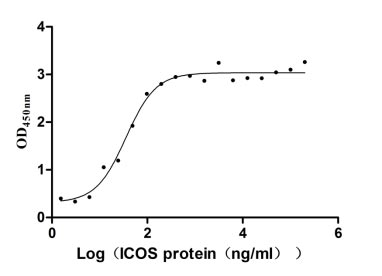
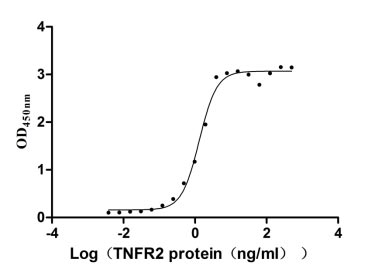
f4-AC1.jpg)
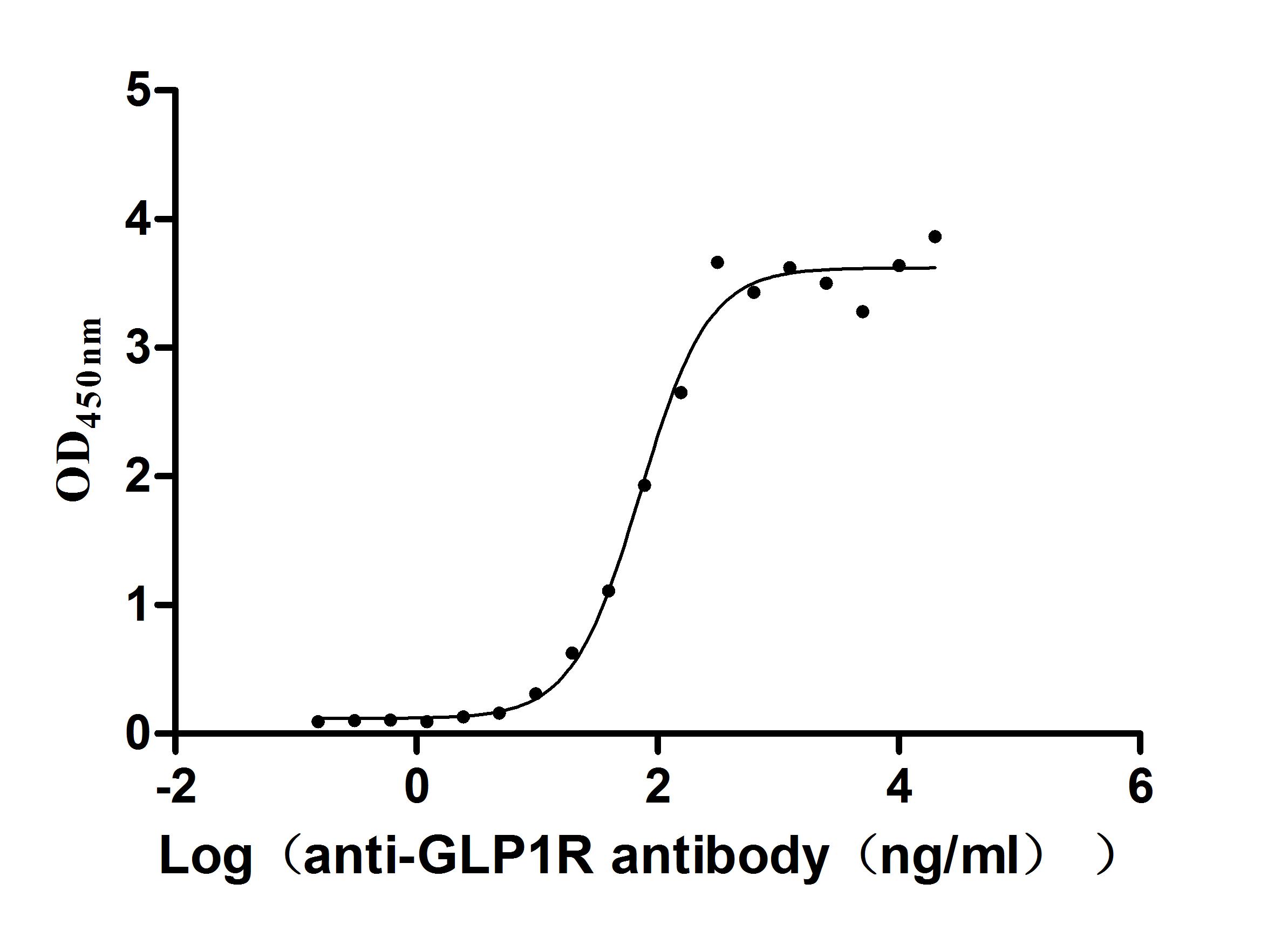
-AC1.jpg)
